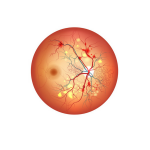Warning and Recommendation from CDC on Contaminated Synthetic Cannabinoids
Node Smith, ND
The CDC has issued a warning and recommendations for clinicians regarding a multi-state outbreak of coagulopathy linked to the use of synthetic cannabinoids.1 The first case of coagulopathy due to synthetic cannabinoid use was reported in March 2018, and since that time 202 cases have been linked to synthetic cannabinoids.
Nearly 100 biological specimens shown to be contaminated with brodifacoum
Nearly 100 biological specimens have been shown to be contaminated with brodifacoum, a vitamin-K antagonist commonly used in rat poison. It is suspected that brodifacoum was mixed with certain synthetic cannabinoid products – intent has not been commented on.
Most cases of coagulopathy isolated to midwestern and southern states
Most of the cases of coagulopathy have been isolated to midwestern and southern states: Florida, Indiana, Maryland, Kentucky, Pennsylvania, Virginia and Wisconsin. Five deaths have been reported.
The CDC recommendations, as listed on the CDC website are as follows:
- Maintain a high index of suspicion for vitamin K-dependent antagonist coagulopathy in patients with a history or suspicion of using synthetic cannabinoids. Patients may present with clinical signs of coagulopathy, bleeding unrelated to an injury, or bleeding without another explanation. Some patients may be asymptomatic or present with complaints unrelated to bleeding but have numerical coagulopathy. NOTE: Some patients may not divulge synthetic cannabinoids use.
- Ask all patients about history of illicit drug use. All high-risk patients (e.g., those reporting synthetic cannabinoids use or those who are suspected of synthetic cannabinoids use within the last three months), regardless of their presentation, should be screened for vitamin K-dependent antagonist coagulopathy by checking their coagulation profile (e.g., INR).
- Possible cases should be asked if they have recently donated plasma or blood (e.g., in the last three months). Clinicians treating possible cases who have recently donated plasma or blood should notify their state health department, who can then notify the FDA.
- Proceduralists (e.g., trauma/general/orthopedic/oral/OB-GYN/cosmetic surgeons, dentists, interventional cardiologists/radiologists, and nephrologists) should be aware that patients with a history of using synthetic cannabinoids may be anti-coagulated without clinical signs of coagulopathy. These patients should be screened for vitamin K-dependent antagonist coagulopathy prior to their procedure.
- Patients sent home from surgeries or other procedures that could result in bleeding should be told not to use synthetic cannabinoids because of the risk that the product may be contaminated with an anticoagulant.
- Contact your local poison control center (1-800-222-1222) for questions on diagnostic testing and management of these patients.
- Promptly report possible cases to your local or state health department.
Synthetic cannabinoids are NOT marijuana or cannabis
Synthetic cannabinoids are NOT marijuana or cannabis and are not associated with any hemp derived products. Synthetic cannabinoids are also not one single drug. They are hundreds of varying synthetic cannabinoid chemicals that are manufactured to act on the same brain receptors as tetrahydrocannabinol (THC) – the psychoactive cannabinoid in marijuana. New chemicals are derived each year with unknown health risks.
Synthetic cannabinoids can be used in a variety of ways
These synthetic cannabinoids can be used in a number of different ways, such as sprayed onto plant material and smoked, used in vaping devices, or ingested. They are commonly available at convenience stores, or online as incense or natural herbal products. Some of the names these products are marketed under inlcude, “fake weed,” “legal weed,” “synthetic marijuana,” “K2,” and “Spice.”
Adverse effects of synthetic cannabinoids includes neurological, psychiatric, and physical complaints
In addition to coagulopathies, the adverse effects profile of synthetic cannabinoids includes neurological symptoms (confusion, agitation), psychiatric symptoms (delusions or hallucinations), and physical complaints such as gastrointestinal distress, changes in heart rate or breathing rate.
Source:
Image Copyright: <a href=’https://www.123rf.com/profile_rawpixel’>rawpixel / 123RF Stock Photo</a>
 Node Smith, ND, is a naturopathic physician in Portland, OR and associate editor for NDNR. He has been instrumental in maintaining a firm connection to the philosophy and heritage of naturopathic medicine among the next generation of docs. He helped found the first multi-generational experiential retreat, which brings elders, alumni, and students together for a weekend camp-out where naturopathic medicine and medical philosophy are experienced in nature. Four years ago he helped found the non-profit, Association for Naturopathic ReVitalization (ANR), for which he serves as the board chairman. ANR has a mission to inspire health practitioners to embody the naturopathic principles through experiential education. Node also has a firm belief that the next era of naturopathic medicine will see a resurgence of in-patient facilities which use fasting, earthing, hydrotherapy and homeopathy to bring people back from chronic diseases of modern living; he is involved in numerous conversations and projects to bring about this vision.
Node Smith, ND, is a naturopathic physician in Portland, OR and associate editor for NDNR. He has been instrumental in maintaining a firm connection to the philosophy and heritage of naturopathic medicine among the next generation of docs. He helped found the first multi-generational experiential retreat, which brings elders, alumni, and students together for a weekend camp-out where naturopathic medicine and medical philosophy are experienced in nature. Four years ago he helped found the non-profit, Association for Naturopathic ReVitalization (ANR), for which he serves as the board chairman. ANR has a mission to inspire health practitioners to embody the naturopathic principles through experiential education. Node also has a firm belief that the next era of naturopathic medicine will see a resurgence of in-patient facilities which use fasting, earthing, hydrotherapy and homeopathy to bring people back from chronic diseases of modern living; he is involved in numerous conversations and projects to bring about this vision.










